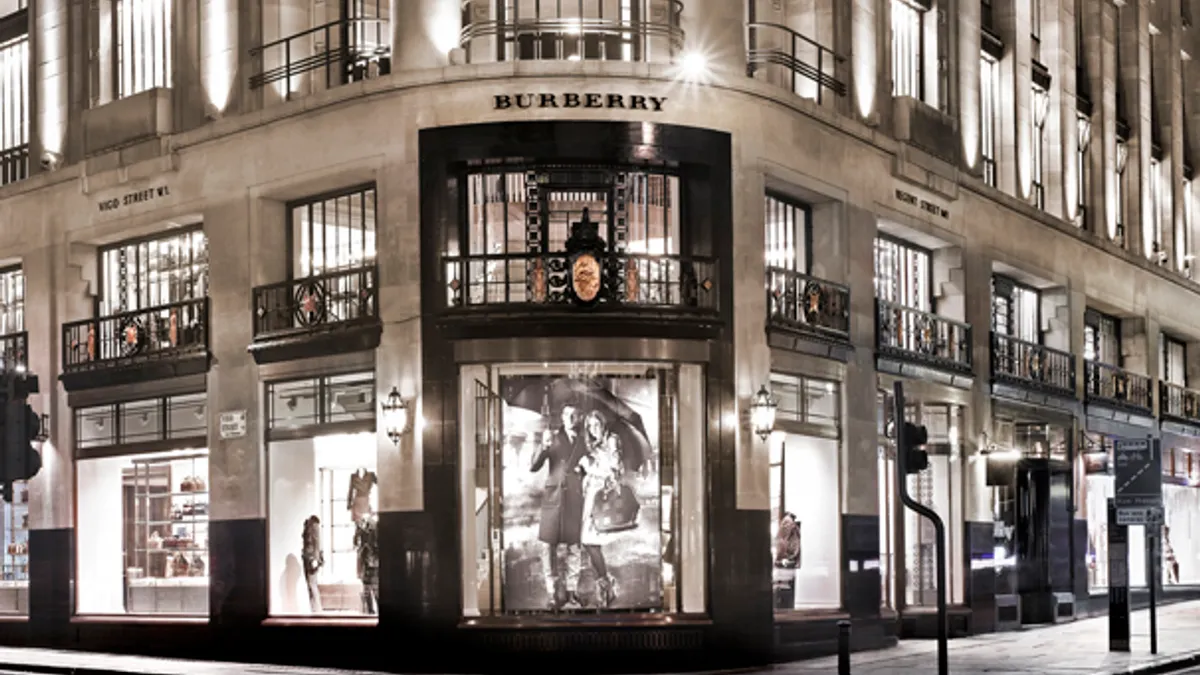Dive Brief:
-
Burberry and Target have resolved a trademark dispute brought by the luxury fashion brand against the retailer, according to court documents. The parties voluntarily dismissed the case, heard in the Southern District of New York, last week. Neither Burberry nor Target immediately returned Retail Dive's requests for further comment.
-
Burberry in May sued the mass merchant over "Target's repeated, willful, and egregious misappropriation of Burberry's famous and iconic luxury check trademarks," and did so repeatedly, even after Burberry requested it cease, according to court documents. Target products "bearing close imitations and counterfeits of the Burberry check trademark, including eyewear, luggage, stainless-steel bottles, and, most recently, scarves," the brand said.
-
Burberry keeps a close eye on knockoffs of its signature plaid and has forced settlements or prevailed in similar suits against JC Penney and TJX Cos.
Dive Insight:
There was a time a few decades ago when Burberry's check plaid, nearly a century old, was ubiquitous on cheap merchandise — not only on knockoffs found in flea markets in the world's major cities but also on its own goods.
That changed in the aughts under former CEO Angela Ahrendts (now Apple's senior vice president of retail), who, with Chief Creatve Officer Christopher Bailey (who stepped down in March after 17 years), revived the Burberry brand after the company over-extended itself with lower-priced merchandise stamped with its iconic check.
In fact, the brand has been so keen to ensure that its goods aren't found too inexpensively that until recently it destroyed merchandise rather than have it turn up in off-price retail or online. In its annual report released earlier this year, Burberry reported that "the cost of finished goods physically destroyed in the year was £28.6 million," ($37.1 million at current conversion rates), up from last year's £26.9 million. That led to a backlash over the amount of waste, and a policy change.
The rise of e-commerce, which has aided the sale of knock-offs in part because sellers can use images of the real thing to sell their fakes, has also vexed luxury brands.
In Target's case, the mass merchant's habit of tying up with upscale designers for special collections made its infringement all the worse, according to the lawsuit. "Target's well-publicized history of collaborating with popular brands and fashion designers to promote and sell Target-exclusive limited edition collections further heightens the risk of such consumer confusion," Burberry argued.
















